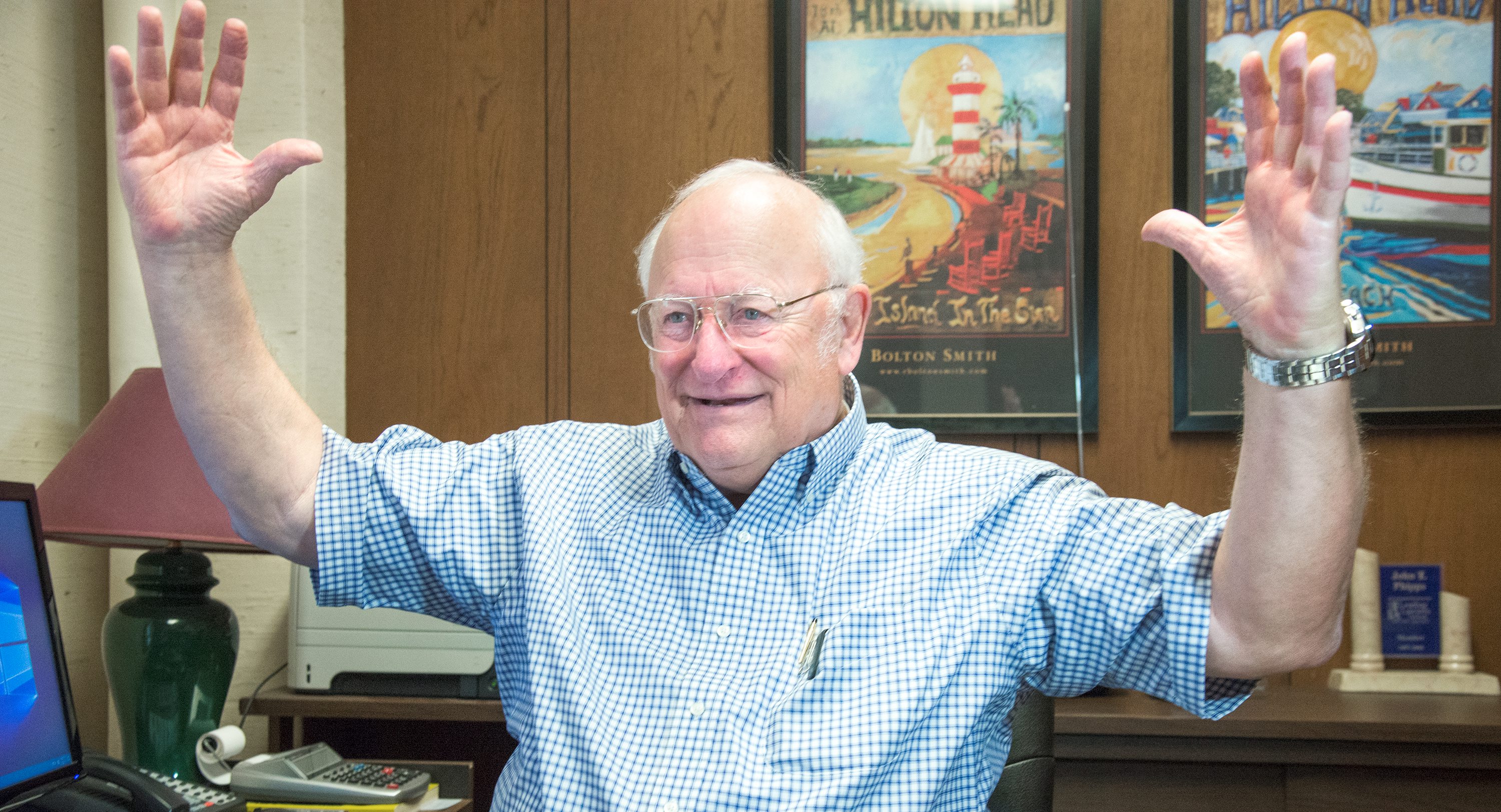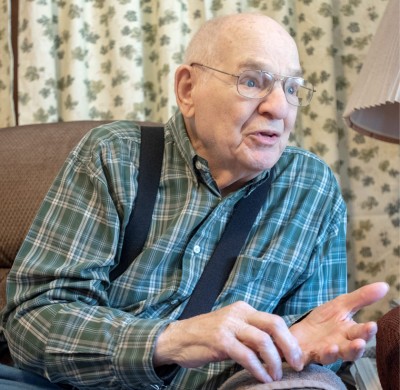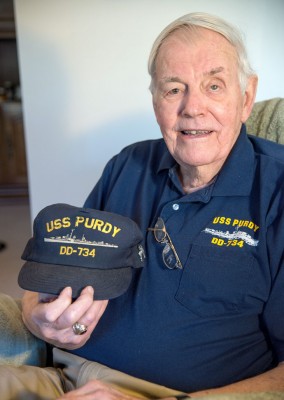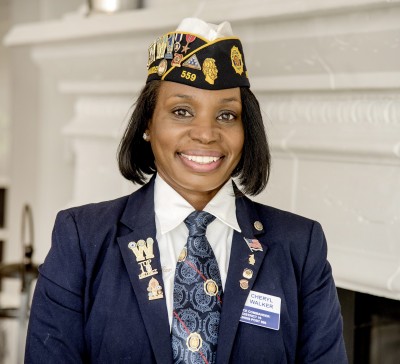John Phipps
By Paul Wood

Photo By Robin Scholz/The News-Gazette
CHAMPAIGN — During the Berlin Wall crisis in 1961, John Phipps was working as the Air Force base provost marshal, in charge of the air police as well as base disaster control officer — such as potential nuclear bomb damage, if things should go to hell between the United States and the Soviet Union.
Phipps, 79, who later rose to captain in the Air Force Reserves, was also on call during the Cuban Missile Crisis of 1962.
In 1961, future attorney Phipps was “a 23-year-old first lieutenant who knew things first lieutenants weren’t supposed to know.”
Since he has lived to 79, obviously a solution was found to the crisis. The Soviet Union never dropped a nuke on Whiteman Air Force Base near Kansas City, Mo., which housed a Minuteman intercontinental ballistic missile group and Strategic Air Command bombers.
The Lawrenceville native was stationed at Scott Air Force Base near Belleville, far from the wall itself, but handling many of the logistical issues for the Berlin Wall crisis.
Soviet soldiers began putting up barbed wire through the divided city in the midnight hours of August 1961, and President John F. Kennedy went head to head with Soviet Premier Nikita Khrushchev as Soviets began erecting a concrete barrier that would survive until the fall of the Soviet Union in 1989.
“Kennedy did some amazing maneuvering with Berlin,” Phipps says.
At the same time, there was tension with the People’s Republic of China, which had shelled two islands in the Taiwan Strait in an attempt to take Taiwan, and also to probe the American resolve to back Taiwan.
“It was a scary time, scarier than most Americans knew,” Phipps says. “Tanks were lined up against each other cannon to cannon in Europe; one out-of-control soldier and we’re in World War III.”
As provost marshal, a position now called director of security and law enforcement, Phipps commanded 110 air police officers securing Scott Air Force Base, and headquarters directing missions from the base, including those in Germany.
The security officers worked calmly with nuclear war on their minds.
“It was a scary as hell,” Phipps says. “But what choice do you have? You do what you have to do.”
As the base’s disaster control officer, he was responsible for incidents “that were the military euphemism for if we got nuked” at a primary target, Whiteman Air Force Base about 200 miles west.
The Berlin Wall Crisis nearly stopped him from getting married. As provost marshal, he rarely could leave the base.
“We were on alert, then we stood down. We were sure I was going to get called back to base, and a few days after we were back from our honeymoon, we were back on alert,” he says.
A friend gave Phipps a chunk of the Berlin Wall, which began to be torn down in 1989 with the fall of the Soviet Union.
“I never thought it could come down,” Phipps says. “I cried like a baby when that happened, it was so emotional.”
Another time, as part of his air police duties, he was so close to an explosion that his hair was singed when airmen were trying to rescue the pilot of a jet that crashed into the woods.
Phipps says the tense work helped prepare him to be an attorney. “You learn to make decisions under fire,” he says. “I’m glad I served, but I wouldn’t want to have to do it again.”
After active duty, he served in the Air Force Reserves, where he attained the rank of captain, while also studying law, which brought him to Champaign-Urbana.
He has an office in downtown Champaign’s historic Lincoln Building.
Do you know a veteran who could share a story about military service? Contact staff writer Paul Wood at pwood@news-gazette.com.
Read more stories from local veterans:
 Leon Eisenhauer
MAHOMET — Cold Warrior Leon Eisenhauer worked with coded messages in the 1950s, sometimes in NATO trucks not far from th …
Leon Eisenhauer
MAHOMET — Cold Warrior Leon Eisenhauer worked with coded messages in the 1950s, sometimes in NATO trucks not far from th …
 Robert Espeseth
SAVOY — Though he served in the Korean War, Navy Capt. Robert Espeseth’s closest brush with death came in Manila Bay. Es …
Robert Espeseth
SAVOY — Though he served in the Korean War, Navy Capt. Robert Espeseth’s closest brush with death came in Manila Bay. Es …
 Cheryl Walker
URBANA — Newly elected Cheryl Walker is the first female commander of the American Legion’s 19th District and, with husb …
Cheryl Walker
URBANA — Newly elected Cheryl Walker is the first female commander of the American Legion’s 19th District and, with husb …